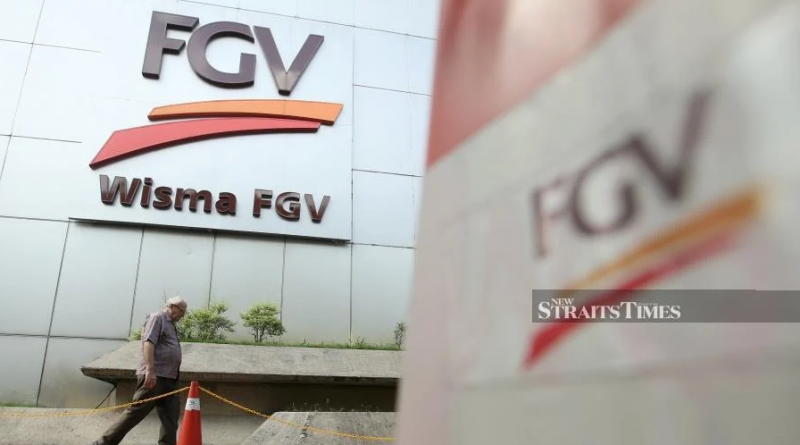FGV to mechanise 30,000ha of estates in three years
KUALA LUMPUR: FGV Holdings Bhd wants to mechanise another 30,000 hectares of its oil palm plantation over three years to reduce dependence on foreign labour.
FGV will spend RM80 million on the initiative including RM36 million which has been set aside this year.
Group chief executive officer Datuk Haris Fadzilah Hassan said the second phase of the mechanisation work would reduce about 10 per cent of its total foreign labour force of 32,000 workers.
“We started the mechanisation work two years ago and managed to mechanise about 180,000 hectares of our plantation,” he said at a briefing on its second-quarter (Q2) results here today.
He said FGV had planned to mechanise about 43 per cent of its total 351,000ha of plantation.
However, a total of 86,000ha could not undergo mechanisation due to hilly terrain, making it difficult to harvest the crop automatically.
Haris Fadzilah said FGV’s foreign labour workforce currently had stood at 96 per cent of its total plantations requirement.
“During the Movement Control Order (MCO) period, many of our workers’ work permit had expired but we worked with respective foreign embassies to extend our labours work permit,” he said.
However, he said the industry had been encouraged to hire more locals.
Meanwhile, FGV remains committed to its diversification into the fast moving consumer good (FMCG) to mitigate the impact of crude palm oil (CPO) price volatility.
CPO used to trade around RM2,000 per tonne, which was not a sustainable level for FGV’s operation.
“Hence, we have to add value to palm oil related products and extend its shelf life to stabilise the CPO prices by offering more range of products to consumers,” he said.
FGV sells about 60 per cent from its 3.0 million tonnes of CPO annually.
“FGV’s FMCG sector is categorised into two segments – food and non-food. We will build the brand and expand our products portfolio internationally, starting Southeast Asia,” he said.
On the possible termination of Land Lease Agreement (LLA) by Federal Land Development Authority (Felda), he said FGV could have saved about RM1.5 billion in annual operations expenditure.
He said FGV’s cash flow and borrowings can be improved without the annual commitments with Felda as the landowner would need to take back existing plantations-related workers involving 11,000 workforce.
FGV’s annual commitments to its plantations include RM300 million for replanting activities, up to RM350 million (fertilisation), RM270 million in capex and RM590 million in employees salaries annually.
FGV must also pay RM248 million annual fee to Felda and share a profit of about 15 per cent for the 351,000ha owned by Felda.
He said FGV could be an asset-light company that focuses on oil extraction rate mid to downstream players if the LLA contact was being terminated.
FGV expects CPO prices to trade between RM2,400 and RM2, 600 per tonne in the second half (2H) of 2020.
Hariz Fadzilah said CPO prices was expected to moderate in the fourth-quarter (Q4) from the current strong CPO prices, ranging from RM2,700-RM2,800 per tonne.
He said CPO prices had been very strong in the second-quarter (Q2) and was holding up in the third quarter as trading surged after the MCO, especially to China and India.
FGV posted a net profit of RM20.55 million in Q2 ended June 30, 2020 from a net loss of RM51.19 million a year ago, while revenue rose 0.5 per cent to RM3.29 billion from RM3.28 billion.
The higher earnings were mainly fuelled by increase in CPO prices and narrowing losses at the sugar sector.
For the six months, FGV posted a higher net loss of RM121.8 million from a net loss of RM55.57 million, while revenue eased 7.3 per cent to RM6.08 billion from RM6.56 billion.
Source: NST

